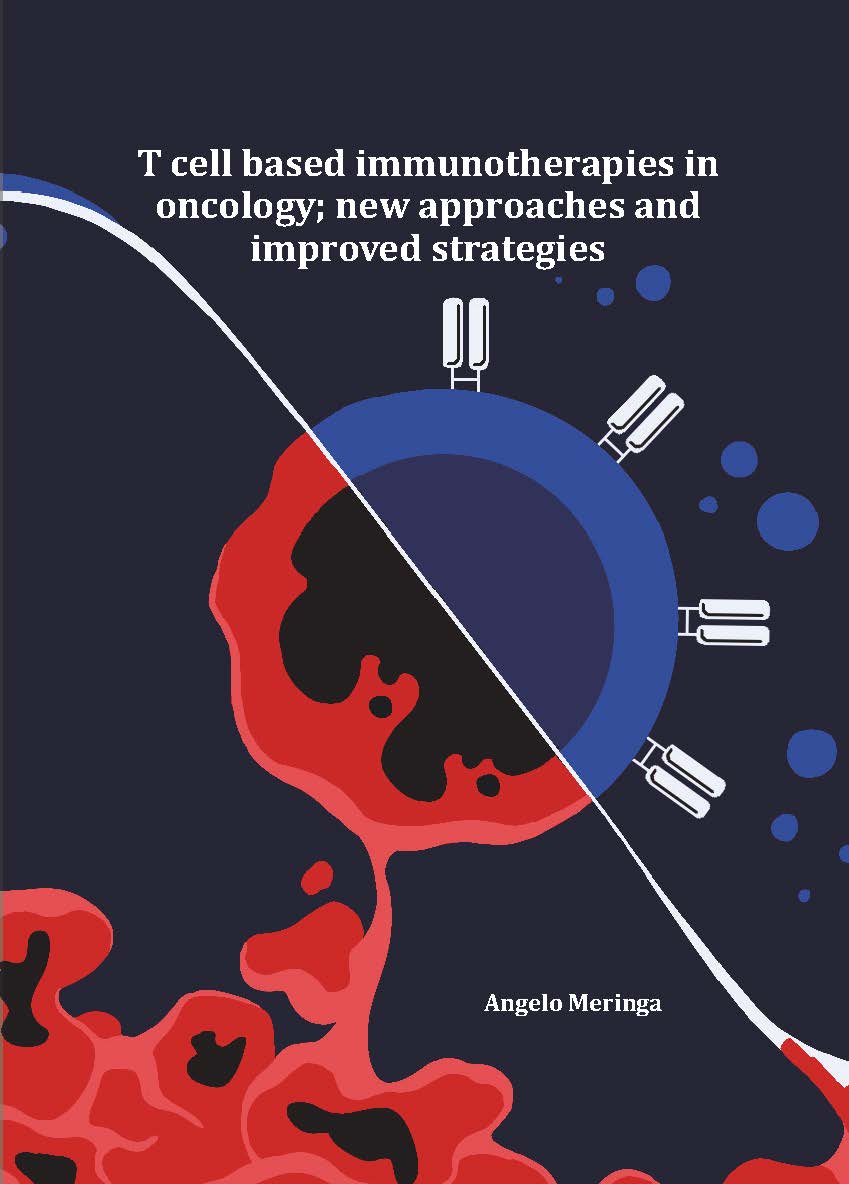Jun 8: New approaches in T cell-based immunotherapies in oncology
Jun 8: New approaches in T cell-based immunotherapies in oncology

In his PhD thesis, Angelo Meringa (UMC Utrecht) describes the mechanisms that influence the efficacy of T cell immunotherapies for the treatment of cancer and demonstrates that modulation of these mechanisms has the potential to improve treatment efficacy.
T cells are an important part of the immune system that can recognize cancer cells can recognize via the T cell receptor (TCR). These T cells can use one of two different types of T cell receptors to recognize a cancerous cell; an αβTCR or a γδTCR. T cells with an αβTCR can detect aberrant peptides originating from infected or cancer cells. T cells with a γδTCR recognize infected or cancer cells by changes in the metabolism of the cell. Such γδT cells are key players in cancer immune surveillance because of their ability to recognize malignant transformed cells, which makes them promising therapeutic tools in the treatment of cancer. However, the biological mechanisms of how γδTCRs interact with their ligands is poorly understood. In his PhD thesis, Angelo Meringa (Center for Translational Immunology, UMC Utrecht) and colleagues describe various obstacles that need to be overcome for further clinical implementation of T cell immunotherapies for the treatment of malignancies.
Key findings

Angelo Meringa discussed the role of γδT cells in the immunosurveillance of cancer cells. The Pi3K-AKT-mTOR and AMPK signaling pathways in malignant cells were identified as pathways through which Vγ9Vδ2+ T cells (a subgroup of γδT cells) recognize and target cancer cells. Furthermore, the investigators describe another Vγ5Vδ1+ receptor and its potential use for T cell immunotherapies. In addition, Meringa and colleagues describe how cancer cells, cells in the tumor microenvironment and T cells communicate and the effect of this communication on the efficacy of T cell immunotherapies. Finally, they showed how various genetic manipulations of T cell therapies can enhance T cell infiltration into the tumor tissue, leading to improved tumor targeting.
In conclusion, in this PhD project Angelo Meringa described several mechanisms that influence the efficacy of T cell immunotherapies for the treatment of cancer and demonstrated that modulation of these mechanisms has the potential to improve treatment efficacy.
PhD defense

Angelo Meringa, MSc (1995, Zoetermeer) defended his PhD thesis on June 6, 2024 at Utrecht University. The title of his thesis was “T cell based immunotherapies in oncology – new approaches and improved strategies”. Supervisor was prof. Jürgen Kuball, MD PhD (Center for Translational Immunology and Department of Hematology, UMC Utrecht). Co-supervisors were Zsolt Sebestyen, PhD and Victor Peperzak, PhD (both Center for Translational Immunology, UMC Utrecht). Recently, Angelo Meringa started as a post-doc in the research group of prof. Jürgen Kuball at the Center for Translational Immunology (UMC Utrecht).

